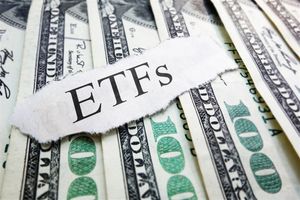In the important area of real estate investing, Dan Werry has spent over two decades guiding clients through the intricate process of deferring capital gains taxes by exchanging investment properties.
Werry's focus on real estate investment began in 1990, where he supported clients purchasing and managing apartments and rental properties. "I realized early on that real estate offered tremendous opportunities to strive to build wealth," Werry said. "The challenge was figuring out how to attempt to maximize returns while minimizing taxes."
This pursuit led Werry to pursue graduate studies in law and business. While attending graduate school, he worked for Wells Fargo's mortgage division, supporting the financing of large-scale condominium projects. "That experience gave me an invaluable education in real estate debt and equity investing," Werry recalled. "It got me thinking about how investors could potentially leverage capital more efficiently."
After graduating, Werry entered the securitized real estate sector, advising high-net-worth clients, family offices and foundations on repositioning equity using 1031 exchanges. He quickly realized that 1031 exchanges offered the significant tax advantages his clients sought. "I became fascinated with the mechanics of 1031 exchanges and the immense benefits they may be able to provide for real estate investors," Werry said. The ability to reinvest the entire amount of your capital gains and depreciation provides the opportunity to continue compounding any returns further while potentially generating “true” passive income along the way. Passive income in this case refers to managed 1031 Delaware Statutory Trust (DST) investment properties, including Energy Royalties which are structured as DSTs.
For the uninitiated, a 1031 exchange allows investors to defer capital gains taxes when selling investment property by reinvesting in other non-related investment property. There are timing rules, and you must set up a Qualified Intermediary account but those are items I help educate my clients to understand. The transaction is governed by Section 1031 of the Internal Revenue Code, which stipulates that “no capital gains tax, or depreciation recapture is due” if the net proceeds from the sale are used to purchase a property of equal or greater value, and any debt or value of the debt is replaced.
"A properly executed 1031 exchange allows investors to defer taxes indefinitely while enabling them to redirect capital into potentially more profitable investments," Werry explained. "It provides a favorable tax treatment of gains that is largely unparalleled in the investment world."
Guiding clients through these complex transactions requires an uncommon degree of expertise. "You have to understand real estate fundamentals while also mastering the myriad technical details outlined in the tax code," Werry said. "It's a challenging line of work, which is why you don't see many people specialize in it." “I follow the equity (stock) market closely, but I do not provide guidance to my clients in that area, the focus required in the 1031 DST real estate area is too great to attempt it part-time, as discovered by other financial professionals.”
Over the years, Werry has facilitated hundreds of 1031 exchange passive investments, enabling clients to build diversified multi-million-dollar real estate portfolios while deferring significant tax liabilities. His services are highly sought after among real estate investors large and small.
A little-known benefit of 1031 DST investments is that clients can choose from what is similar to a menu of investments, many of which have matching debt “in place” so clients do not have to qualify for a replacement loan, these loans are non-recourse so will not attach to their other assets or credit. As my clients position themselves for retirement, taking those loans off their books can be a comforting approach.
Many of my clients realize that their retirement is centered on income from their real estate portfolios built over time, with significant appreciation. For example, a rental purchased for $200,000 20 years ago now could sell for $1,200,000 and have a capital gains and depreciation recapture tax of $470,000. For clients who have accumulated 3 similar properties that is equivalent to walking away from $1,410,000 in equity and the potential income from that equity.
"There's a vast universe of 1031 investment properties available, but relatively few people have the ability to properly evaluate them," Werry said. "I provide that service, drilling deeply into the fundamentals so my clients can make informed decisions."
Given his stature in the industry, Werry is frequently invited to speak at real estate conferences and events. He relishes these opportunities to educate investors on the advantages of 1031 DST investments. "The more people understand these transactions, generally the more comfortable they feel about selling their properties with the thought of retiring and enjoying more time previously occupied by managing their properties." Werry said.
It is important to note that in cases in which a new potential clients calls and says their 1031 fell through, or did not know about it in time I can provide a “Bonus Depreciation” investment that is structured to offset their “Passive Gain” with “Passive Losses” there by potentially converting their potential capital gains tax into an investment and providing remaining equity to be utilized outside of the 1031 exchange process. This opportunity is more complex and with proper planning has the potential to provide many of the benefits of a 1031 DST investment.
Looking ahead, Werry continues to help his clients diversify their investment portfolios by providing other tax efficient growth and income investments, whether that be real estate, energy or charitable donation based. "There's always room for innovation," Werry said. "The more seamless we can make transactions, the more value I can strive to provide my clients."
Finally, after starting in the industry in the 1031 DST industry in 2003, and investment real estate in 1990 I have a vast knowledge of which investment real estate companies have extensive experience and trusted backgrounds. Given his acumen and decades of experience facilitating complex 1031 exchange investing, Werry seeks to remain a trusted authorities in this field for years to come. In the opaque world of tax law, Werry offers investors clarity and a chance for peace of mind.
1031 Risk Disclosure:
There is no guarantee that any strategy will be successful or achieve investment objectives; Potential for property value loss – All real estate investments have the potential to lose value during the life of the investments; Change of tax status – The income stream and depreciation schedule for any investment property may affect the property owner’s income bracket and/or tax status. An unfavorable tax ruling may cancel deferral of capital gains and result in immediate tax liabilities; Potential for foreclosure – All financed real estate investments have potential for foreclosure; Illiquidity – Because 1031 exchanges are commonly offered through private placement offerings and are illiquid securities. There is no secondary market for these investments. Reduction or Elimination of Monthly Cash Flow Distributions – Like any investment in real estate, if a property unexpectedly loses tenants or sustains substantial damage, there is potential for suspension of cash flow distributions; Impact of fees/expenses – Costs associated with the transaction may impact investors’ returns and may outweigh the tax benefits
For more information on Emerson Equity, please visit FINRA’s BrokerCheck website. You can also download a copy of Emerson Equity’s Customer Relationship Summary to learn more about their role and services.
General Disclosure
Not an offer to buy, nor a solicitation to sell securities. All investing involves risk of loss of some or all principal invested. Past performance is not indicative of future results. Speak to your finance and/or tax professional prior to investing. Any information provided is for informational purposes only.
Securities through Emerson Equity LLC Member: FINRA/SIPC. Only available in states where Emerson Equity LLC is registered. Emerson Equity LLC is not affiliated with any other entities identified in this communication.
Media Contact
Company Name: Irvine Advisors LLC
Contact Person: Dan Werry
Email: Send Email
Country: United States
Website: https://danwerryirvineadvisorsllc.com/






